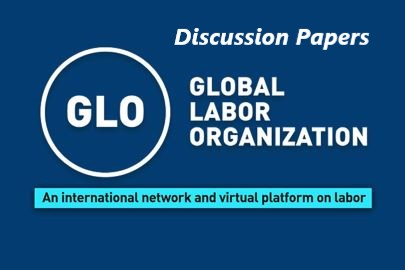A new GLO Discussion Paper evaluate the differential responses of poor households vs. non-poor households to changes in food expenditures and prices and simulate the welfare losses from food price changes across poverty definitions.
GLO Discussion Paper No. 890, 2021
Poor vs Non-Poor Households in Uruguay: Welfare Differences from Food Price Changes – Download PDF
by Echeverría, Lucía & Molina, José Alberto
GLO Fellow José Alberto Molina

Author Abstract: Evidence suggests that household responses to price and income changes are significantly sensitive across income levels and rural-urban location. In this paper, we focus on poor households vs. non-poor households using two definitions of poverty, objective and subjective. We evaluate the differential responses of poor households vs. non-poor households to changes in food expenditures and prices and simulate the welfare losses from food price changes across poverty definitions. We use the QUAIDS model to estimate food elasticities with data from the National Expenditure and Household Income Survey, 2016-2017, from Uruguay. Expenditure elasticities at the food level reveal that bread and dairy products are a necessity-food category, regardless of the poverty status and across poverty definitions, while beverages are a luxury good. The demand sensitivity for the rest of the food categories differs by poverty status and poverty definitions. Uncompensated own-price elasticities indicate that when poverty is defined objectively, then changes in demand due to changes in price are greater for poor households (except for meat products). However, poor households, under the subjective definition, are more sensitive than non-poor households only to changes in beverage prices. Additionally, changes in household economic welfare due to price increases vary according to poverty status. On average, the percentage of total income needed to avoid a loss in economic welfare of poor households, defined by the objective method, is double that required by the non-poor households, for all price changes. However, differences are much smaller when using the subjective approach to measure poverty.

GLO Discussion Papers are research and policy papers of the GLO Network which are widely circulated to encourage discussion. Provided in cooperation with EconStor, a service of the ZBW – Leibniz Information Centre for Economics, GLO Discussion Papers are among others listed in RePEc (see IDEAS, EconPapers). Complete list of all GLO DPs – downloadable for free.
The Global Labor Organization (GLO) is an independent, non-partisan and non-governmental organization that functions as an international network and virtual platform to stimulate global research, debate and collaboration.
Ends;

